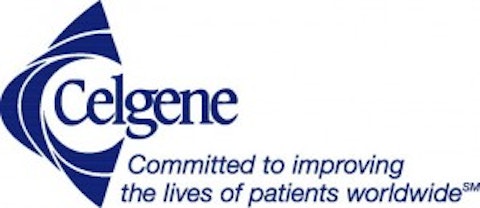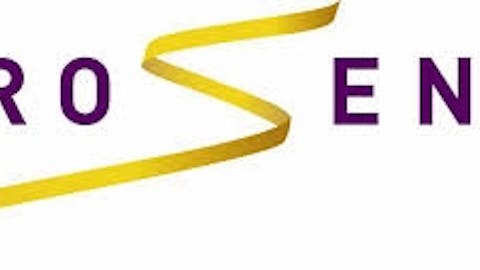Early this morning, Celgene Corporation (NASDAQ:CELG) announced that it was discontinuing the phase 3 ORIGIN Trial evaluating Revlimid (lenalidomide) in B-Cell chronic lymphomatic leukemia. The trial enrolled 450 elderly patients who had not undergone prior treatments and compared Revlimid against Leukeran (chlorambucil) from GlaxoSmithKline plc (ADR) (NYSE:GSK). Unfortunately, a higher number of patient deaths were observed in the Revlimid arm, which forced the Food and Drug Administration to place the trial on clinical hold last week and the eventual discontinuation today. What does it mean for patients? Is this a blow to investors? Let’s review.

The study evaluated patients who were 65 years of age and older; most of which displayed comorbidities such as diabetes and congestive heart failure. With that in mind, it is important to note that no conclusion has been drawn as to what caused the spike in deaths in the Revlimid arm. However, the data were certainly in favor of discontinuing the trial: 34 of 210 patients on Revlimid died, compared to 18 of 211 patients on Leukeran.
This would no doubt have been a great step forward for patients if successful. The good news is that there are multiple treatments available for patients with B-Cell lymphoma. Biogen Idec Inc (NASDAQ:BIIB) and Roche offer rituximab as a first-line combination treatment, while Sanofi offers alemtuzumab as a second line treatment. Rituximab brought in $7.2 billion in sales in 2012 — making it one of the most successful drugs in the world (it is also approved for non-Hodgkin’s lymphoma and rheumatoid arthritis). It is about to get much cheaper for patients, too. A total of 12 companies have lined up to commercialize generic versions once patents expire in Europe at the end of this year and in the United States in 2018.
Not all bad news for investors, either
Trial failures are rarely good news for investors, but Celgene Corporation (NASDAQ:CELG) wasn’t pinning its future on the ORIGIN Trial. The high-growth biotech has plenty of potential in the pipeline to withstand a few failures here and there. In fact, the company still has 16 ongoing or ready-to-be-initiated phase 3 trials. I cannot promise that shares won’t pullback on the news (they have been on a tear recently anyway), but the sky is by no means falling.
Celgene Corporation (NASDAQ:CELG) will now turn its focus in chronic lymphomatic leukemia, or CLL, to its novel next generation Bruton tyrosine kinase, or BTK, inhibitor. CC-292 may only in phase 1 trials, but there is a lot of excitement about the potential that this class of drug holds. The BTK pathway regulates B-Cell activation and is believed to play a crucial role in many blood cancers. Several preclinical trials have also hinted that BTK inhibitors have a future in treating autoimmune diseases.
The astounding rise of Pharmacyclics, Inc. (NASDAQ:PCYC) through the markets has been largely based on its BTK inhibitor ibrutinib, which is being evaluated in four types of blood cancers and in a preclinical study for autoimmune indications. The rise is no fluke, either. Ibrutinib has shown very promising results in two phase 2 trials as a monotherapy and will soon be moved to phase 3 trials for both. With billions of dollars between the lymphoma and autoimmune markets up for grabs, it is easy to see why shares have risen 2,000% since the company acquired its lead drug candidate in 2006. Can Celgene Corporation (NASDAQ:CELG) tap into this multibillion opportunity with CC-292? Ask me again in about five years.
Foolish bottom line
Is this failed trial a blow to investors? Yes, although it is cushioned by a late-stage pipeline that is stocked full of potential. Revlimid, which is already approved for multiple myeloma and myelodysplastic syndromes, is far from done expanding: The therapy is currently being evaluated in nine trials throughout the pipeline. When it comes to B-Cell CLL, however, Celgene Corporation (NASDAQ:CELG) will now have to wait for its novel BTK inhibitor to work its way through trials. Can it show the promise of Pharmacyclics, Inc. (NASDAQ:PCYC)’s ibrutinib? It is much too early to say for sure, but it is surely a compound that investors will want to keep on their radar.
The article What Does Celgene’s Failed Trial Mean for Investors? originally appeared on Fool.com and is written by Maxx Chatsko.
Fool contributor Maxx Chatsko has no position in any stocks mentioned. Check out his personal portfolio, his CAPS page, or follow him on Twitter @BlacknGoldFool to keep up with his writing on energy, bioprocessing, and biotechnology. The Motley Fool recommends Celgene.
Copyright © 1995 – 2013 The Motley Fool, LLC. All rights reserved. The Motley Fool has a disclosure policy.




